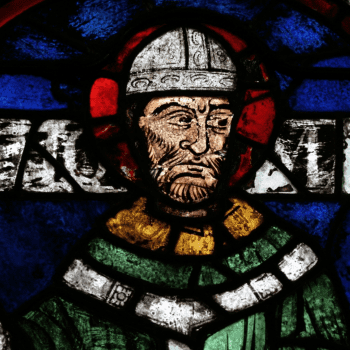Following Sola Scriptura, Sola Fide, and Sola Gratia, Martin Luther clarified the ultimate distinction between Protestantism and every other belief: salvation was possible through Christ alone: Sola Christus. Truth comes from scripture alone. Faith comes from Christ alone.
At the heart of the matter lies the answer to the question: is saving faith in Jesus Christ enough? Or does one need to contribute something to atone for one’s sins– in addition to Christ’s death on the Cross and resurrection from the grave?
By the early mid-16th century, the Roman Catholic Church had instituted seven sacraments necessary for salvation:
- baptism,
- confirmation, or Chrismation,
- communion (partaking of the Eucharist),
- acts of penance,
- anointing the sick,
- Holy Orders,
- and matrimony.
Martin Luther’s reformation reduced these to two: baptism and communion. His reasoning was based on the centrality of the person and work of Jesus Christ as taught in the Bible.
The Roman Catholic Church’s doctrine reduced Jesus to a wooden crucifix still nailed to a cross, rather than allowing anyone to know the power of Jesus’s resurrection from it. Its doctrine repudiated the truth of what the Bible teaches: there is only one mediator between God and humanity, the Lord Jesus Christ. And, there is only one way to be purified from sin’s stench of death, through Christ’s single atoning death that was powerful enough to propitiate for every kind of person’s sins. Anyone, regardless of their ethnic, cultural, religious or social background could be saved.
For there is one God and one Mediator between God and man, the man Christ Jesus, who gave himself as a ransom for all men – the testimony given at the proper time.” (1 Tim. 2:5-6)
Could the mediator be the Pope, bishops or priests? No.
The only mediator could be Jesus Christ, because only Jesus can rightly identify with both God and humanity. The Apostle Paul points to the fact that “Christ Jesus came into the world to save sinners.” (1 Tim. 1:15) As such, Jesus preexisted as the eternal Son of God– by coming into the world of people from the heavenly realm. When Jesus became fully human, without having any sin (Hebrews 2:9-18), he could die as a sinless substitute for humanity. The guilt of sinners was bought by the cost of his death. (Titus 2:11-14) Only Jesus, as the perfect God-Man, could please both God’s demand for justice and humanity’s need for salvation. Only he, as part of the triune God, can mediate on behalf of the condemned.
Martin Luther argued that Christian theology was “the theology of the Cross.” This meant that salvation from eternal death and separation from God was achieved only through faith alone (sola fide), grace alone (sola gratia), and Christa alone, Solus Christus.
Jesus, Martin Luther argued, was enough. There is no need for priests or praying to or asking for blessings from Jesus’s mother, Mary. There is no need to ritually perform sacraments to earn salvation (baptism, penance, communion). And there definitely is no need to pay for anyone’s “unpaid-for- sins” whom the Roman Catholic Church claims is trapped in the non-biblical state of “purgatory.” In fact, belief in Jesus in alone brought such relief and joy to Luther that he wrote,
“If you have true faith that Christ is your Savior, then at once you have a gracious God, for faith leads you in and opens up God’s heart and will, that you should see pure grace and overflowing love.”
This conviction led Martin Luther to declare 95 theses questioning Roman Catholic policy. It led to widespread social and political change. It led to an untold number of lives saved, and an empire that was financially threatened by his protest and willing to do anything to stop him and others from upending its power.
One man, Martin Luther, stood alone against an empire. His motivation was spiritual, but the outcome of his conviction was spiritual and political, leaving a global legacy 500 years later and celebrated this October 31st.
A beautiful tribute to this truth was written and composed by the modern hymn-writers, Stuart Townend, and Keith and Kristyn Getty, “In Christ Alone”:
Here’s the story behind the song:












